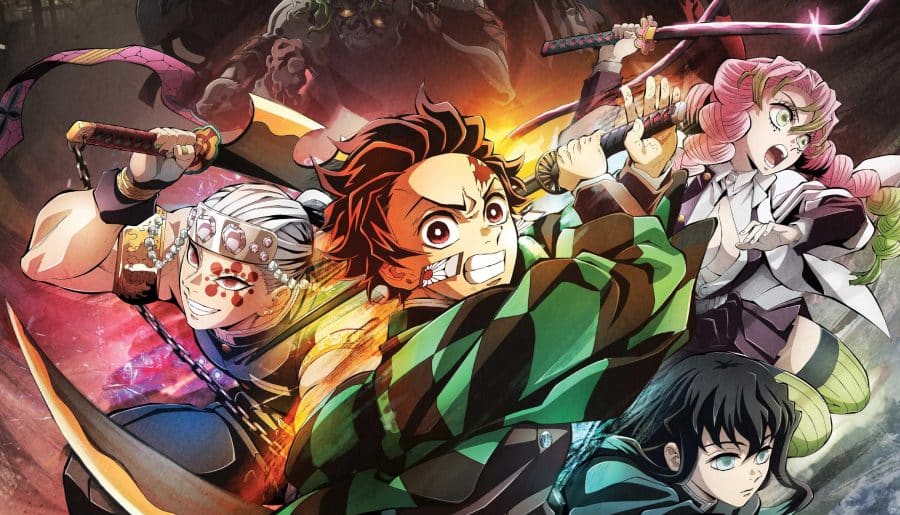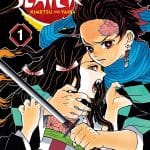Remember my last post about how the demon king Muzan Kibutsuji was inspired by a formidable yokai Japanese folklore? If you haven’t had a chance to check it out, you can find it here.
I thought you might be interested in learning about other characters from this series inspired by Japanese folklore. That’s why I’ve compiled a list of some of these characters and their interesting facts you won’t want to miss.
Spider Family and Tsuchigumo
In Demon Slayer, the Spider family is a clan of demons that live on Mount Natagumo. They all have white, pale skin and are skilled in using spider threads/strings to attack enemies.
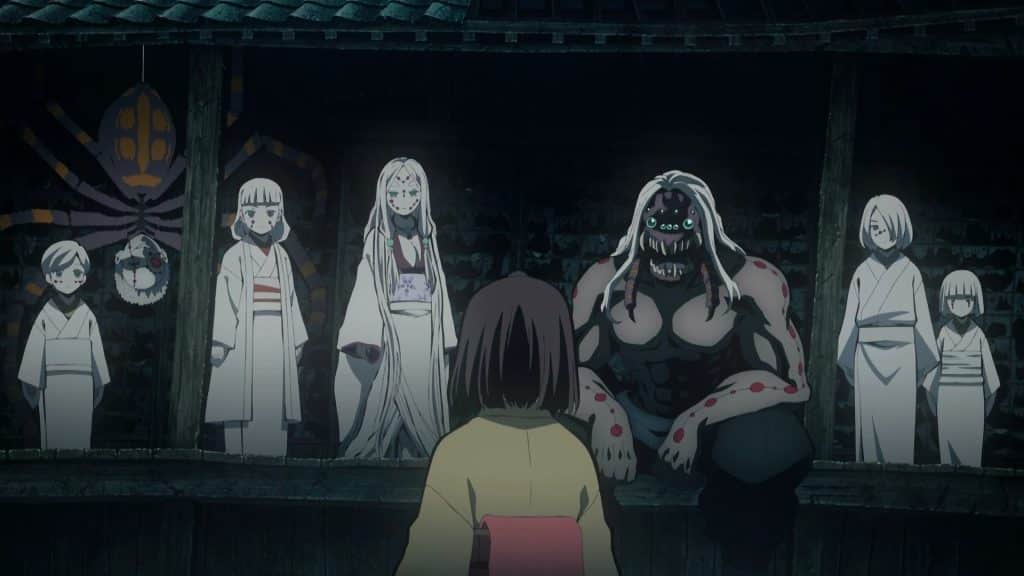
Rui, one of the Twelve Kizuki demons, formed and led the group. It’s made up of five demons, including Father, Mother, Daughter, Son, and Rui himself who portrayed himself as the youngest brother of the family.
According to the folklore, Tsuchigumo is a race of spider-like yokai.
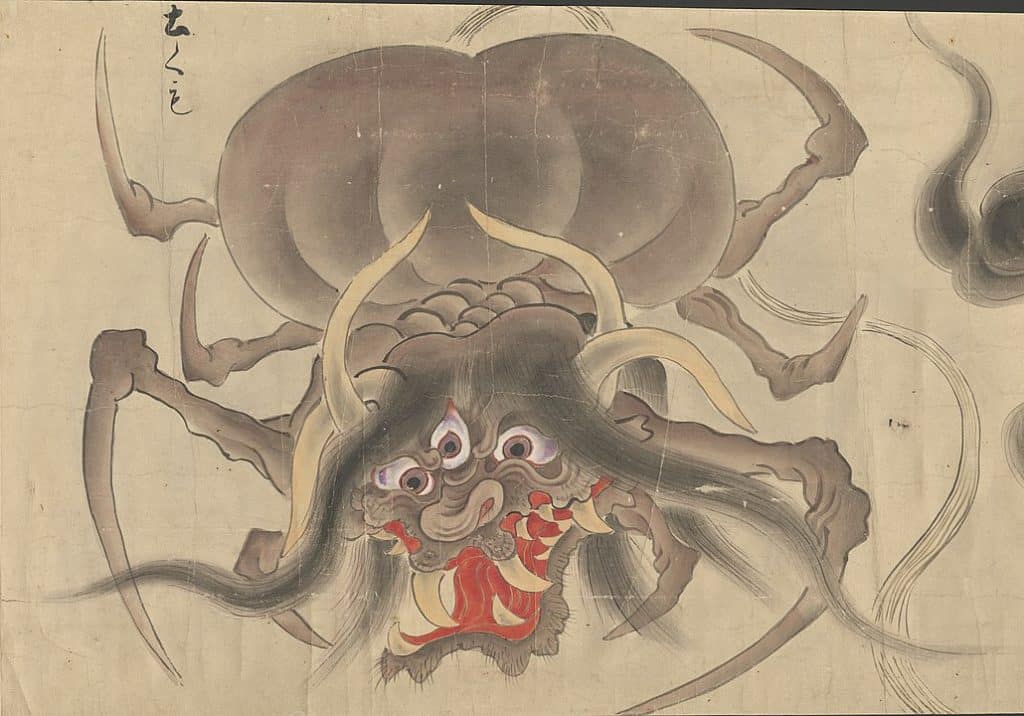
This creature was known for lurking in caves and forests, using strings to catch large prey, including humans. Tsuchigumo was also known for its ability to shape-shift and control other spiders.
Akaname and Tongue Demon
Akaname is a yokai known for licking the scum out of bathrooms and bathtubs.
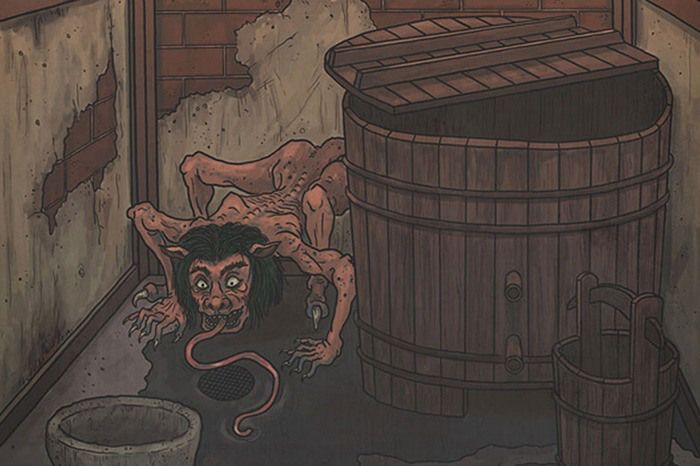
It’s usually found in unclean houses and comes out at night to remove the grime using their long, sticky tongues.
In the anime, the Tongue Demon lived in the Tsuzumi Mansion. It has an extremely long tongue, which he uses to perform his Flesh Manipulation.
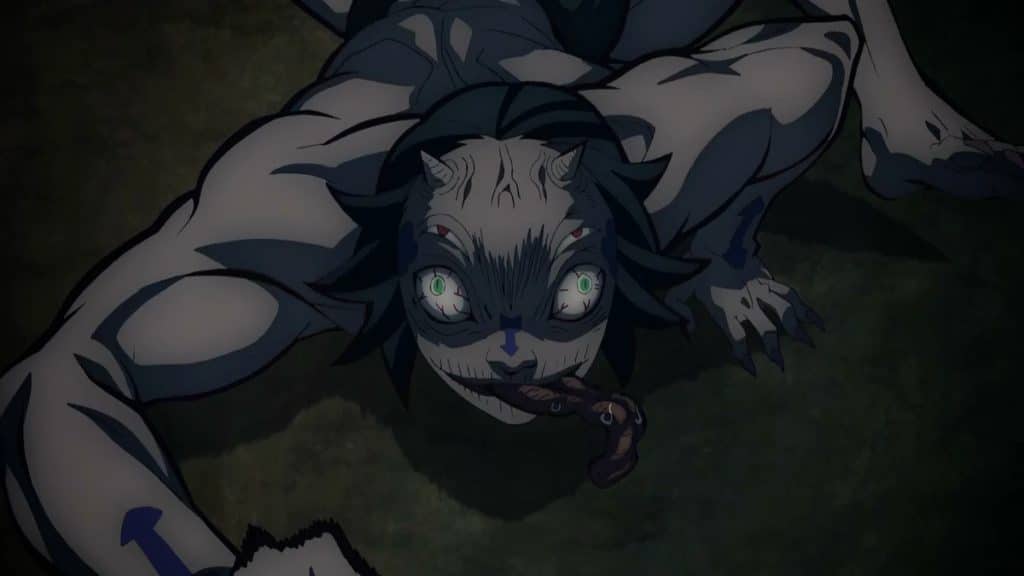
The demon can also control his tongue’s length, speed, and sharpness, making it easy for him to slice through anything.
Yahaba and Tenome
Yahaba was a demon in Demon Slayer who respected and served his leader Muzan.
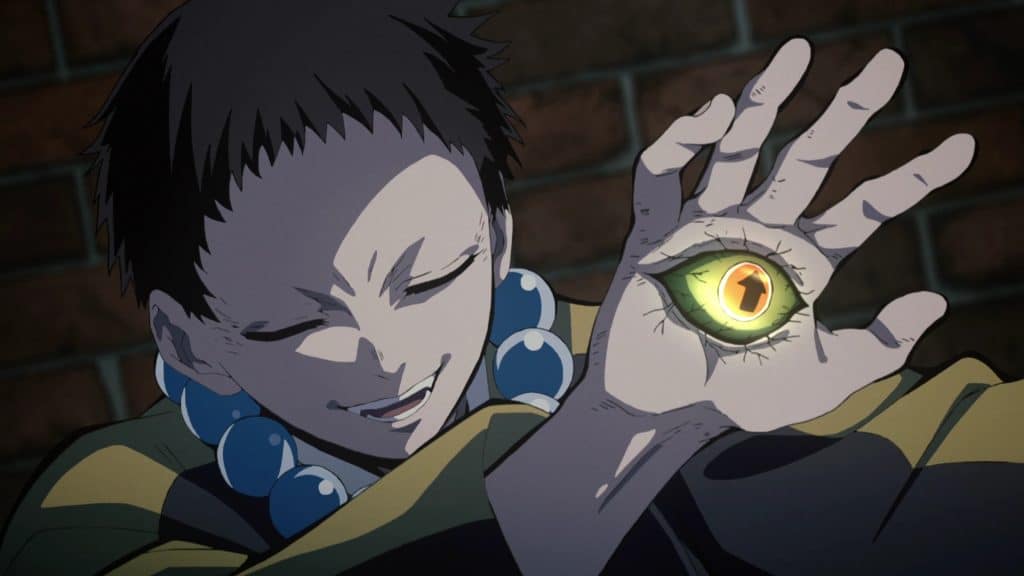
He had eyes on his hands, which helped him accurately track anyone’s location, a technique called Enhanced Hearing.
Tenome is a yokai from an illustration book Gazu Hyakki Yagyō by Toriyama Sekien that was published in 1776.
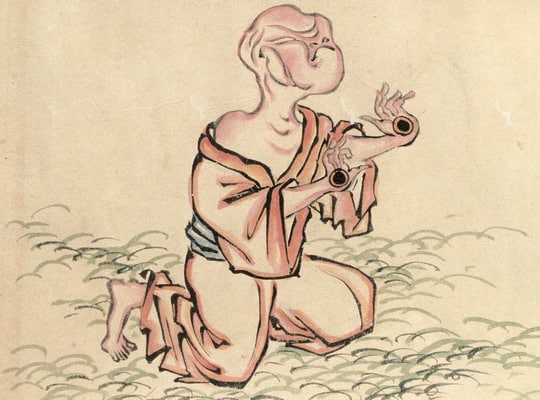
It appears as an elderly person with no eyes on its face. Instead, it has eyes in the palms of its hands. This yokai is quick and has a strong sense of smell that helps it catch its prey in the dark.
Both Yahaba and the Tenome have weak vision and rely on other senses to catch their target.
Susamaru and Ashura
In Buddhism, Asura is one of the strongest demigods or titans of the Kāmadhātu.
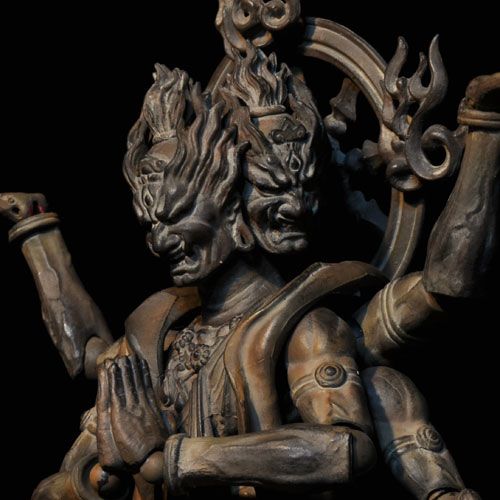
It has three heads with three faces and four or six arms. Ashura also enjoys fighting and destroying things and prefers to solve problems with violence.
On the other hand, Susamaru is a demon that can summon Temari balls that she throws as projectiles.
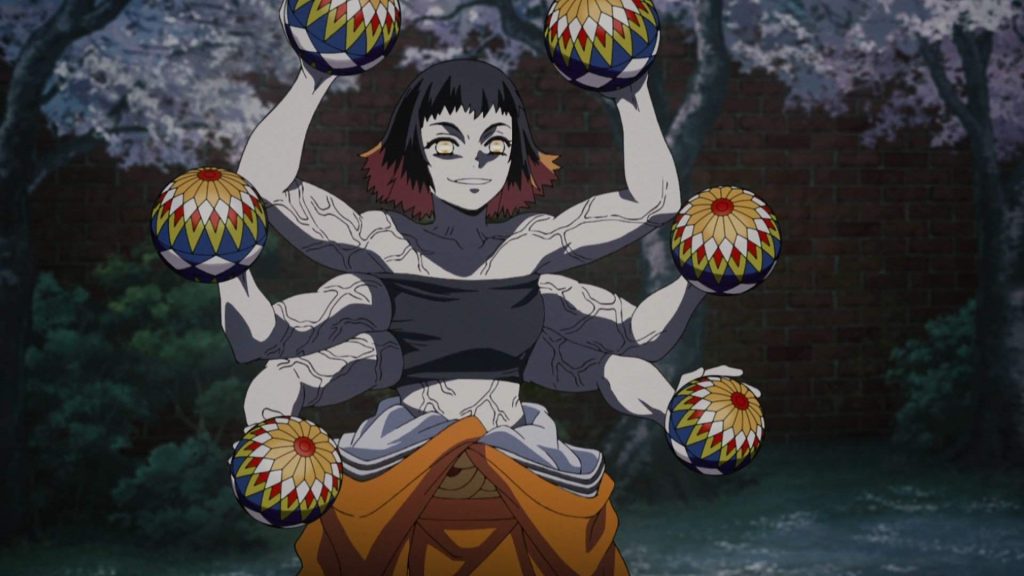
She has an average build but becomes more muscular when she fights seriously. Like Ashura, she can also grow two new pairs of arms.
Kyogai and Raijin, the God of Lighting
Kyogai, also known as the Drum Demon, was once a member of Twelve Kizuki demons. But he was kicked out because he reached his limit as a demon and lost the ability to become stronger.
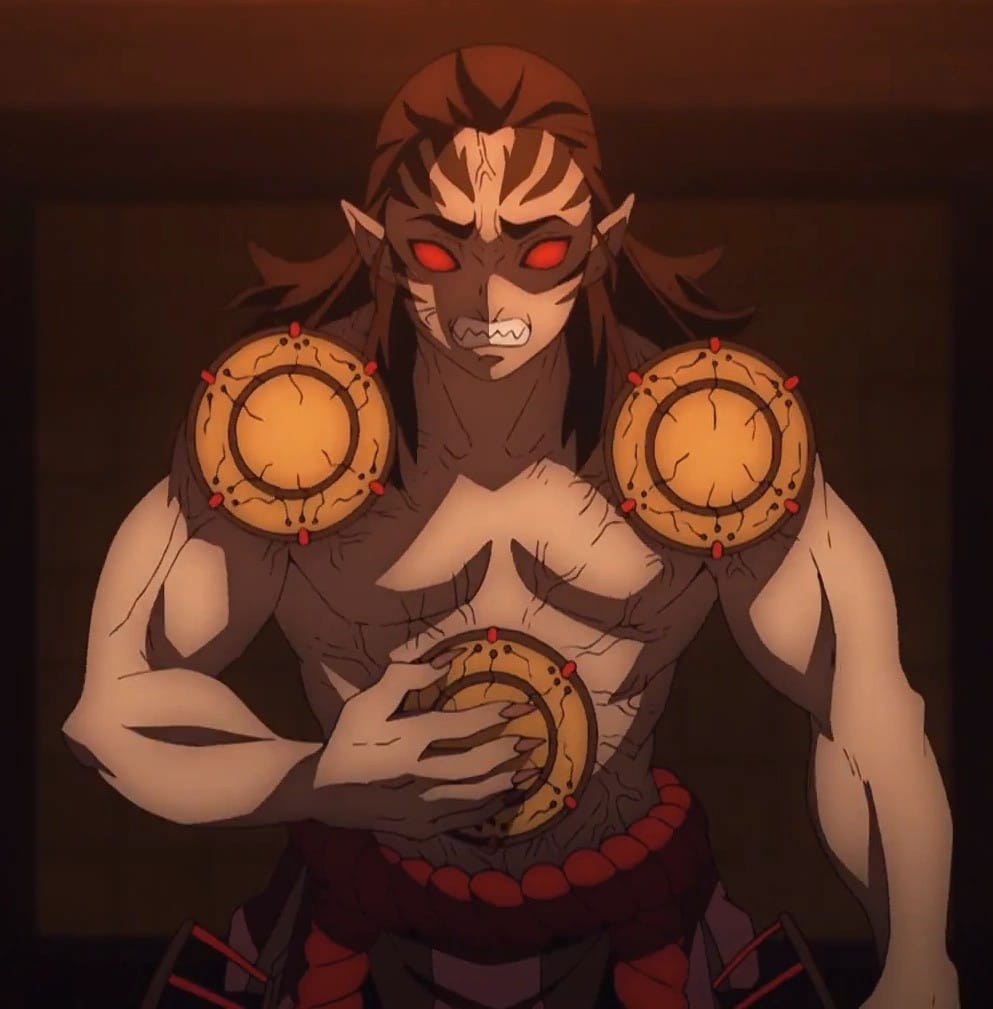
Kyogai’s body has six drums embedded in different places, such as his stomach, shoulders, hips, front chest, and back. These drums are unique physical characteristics he uses for his Blood Demon Art Technique, Drumming. With the drums, he can rotate rooms, perform slash attacks, and teleport from one room to another.
Raijin, known as the God of Lightning or Thunder God, is a deity in Japanese mythology. He’s usually depicted with an aggressive expression, standing on a cloud and playing den-den daiko drums with tomoe symbols.
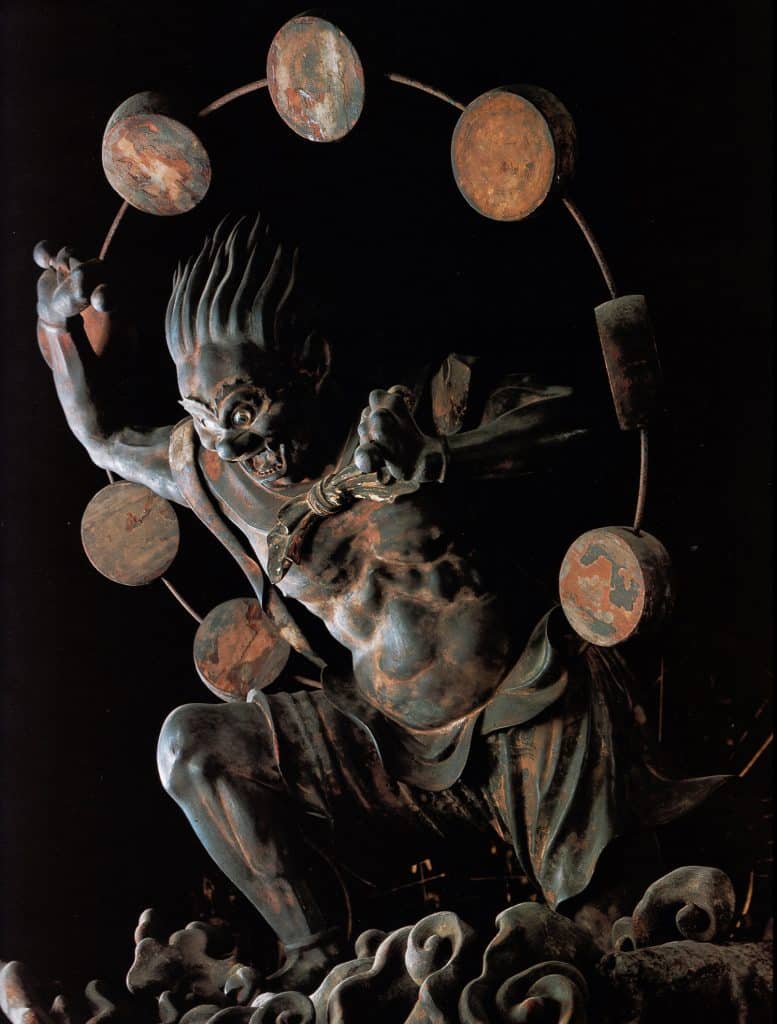
The drums are arranged in a halo of six behind him, which he uses to create the sound of thunder and attack people. He throws lightning bolts at people below when he flies on dark clouds.
